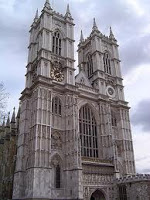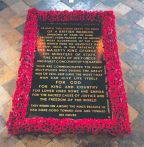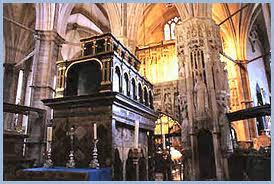Law and Rights
The Royal Wedding was held on Friday 29th April at the Collegiate Church of St. Peter, Westminster - normally simply referred to as ?Westminster Abbey.? The Abbey is part and parcel of the Church of England of which Her Majesty the Queen is Supreme Governor . The General Synod (with the three Houses: Bishops, Clergy and Laity) is, in effect, the national assembly of the Church. The Church also has its own clergy, law and internal court structure. The present relationship of the Church to both the Crown and to Parliament are explainable only by history and the constitutional settlement which came about in the turbulent years of the 16th and 17th centuries. The Church has two ?Provinces? ? Canterbury and York ? each with an Archbishop. The Archbishop of Canterbury is referred to as the ?Primate of All England? (first Bishop of England) whereas the Archbishop of York is the ?Primate of England.? The long history of the Church and its structure make for interesting reading. The Archbishops, along with certain Bishops are entitled to sit in the House of Lords ? see House of Lords membership.
Places like Westminster Abbey are imbued with our long history as a nation. Close to the Great West Door is the tomb of the Unknown Warrior. In these times
when human rights are very much on the international and national political agenda and maybe even under threat, the visitor would do well to pause and ponder the sacrifices made by so many for freedom under law.
- 60 Years Ago Today
2nd June is the 60th Anniversary of the Coronation of HM Queen Elizabeth II. The BBC has had the original footage digitally remastered - see here and the The Coronation of Queen Elizabeth II may be viewed on BBC Parliament from 1010 BST on...
- Marriage (same Sex Couples) Bill ~ Key Features
The Marriage (Same Sex Couples) Bill aims to enable lawful marriages between two males or two females. It is a government bill sponsored by the Department for Culture, Media and Sport (DCMS) and the department has issued Equal Marriage with a view...
- King Richard Iii
The University of Leicester has announced that all the available evidence shows that human remains (a skeleton) discovered on the site of the former Greyfriars Church, Leicester are the remains of King Richard III - see University of Leicester Media Centre...
- Matters Royal
HM The Queen in ParliamentUpdated The Commonwealth is a voluntary association of 54 countries that support each other and work together towards shared goals in democracy and development. In 2009, the Commonwealth reaffirmed certain core values...
- Our Legal Heritage - No.1 - Early Times And The Anglo-saxon Period
Boudicca - Queen of the IceniThe Anglo-Saxon period dates from around the time of the end of the Roman Occupation (c. 410 AD) to the defeat of Harold at the Battle of Hastings (1066). Of course, our history goes back long before the Anglo Saxons...
Law and Rights
Reflections on Church and State
 |
| Westminster Abbey |
Some churches are known as ?Peculiars? and this includes Westminster Abbey. Peculiars are places of worship falling directly under the jurisdiction of the Queen though, in practice, they have their own system of management and administration. Westminster Abbey is governed by the Dean and Chapter established by Royal Charter of Queen Elizabeth I in 1560. Mostly, the Peculiars are churches or chapels connected closely to the Royal Family but the Inns of Court Chapels are also Peculiars ? e.g. Temple Church.
 |
| Tomb of the Unknown Warrior |
when human rights are very much on the international and national political agenda and maybe even under threat, the visitor would do well to pause and ponder the sacrifices made by so many for freedom under law.
Courts within the Church of England: a considerable range of courts developed and they had jurisdiction in matters relating to wills (probate); marriage and divorce. In the 19th century, this jurisdiction was transferred to the normal civil courts - e.g. High Court. The church continues to have courts which exist for internal management purposes. The Province of Canterbury has the Arches Court of Canterbury. The Province of York has the Chancery Court of York. There is also a Court of Ecclesiastical Causes Reserved. Each Diocese has a Consistory Court. A further development has been a system of disciplinary tribunals created by the Clergy Discipline Measure 2003. The tribunals took over from consistory courts matters relating to discipline of the clergy. It is interesting that legislation relating solely to the Church of England is prepared by the General Synod but must be approved by Parliament and receive Royal Assent. Such legislation is referred to as a "Measure" as opposed to an Act. Further information is available here. A great deal more information about the ecclesiastical courts is available here.
An appeal is possible from the Court of Arches of Canterbury or the Chancery Court of York to the Judicial Committee of the Privy Council. Such appeals have to relate to non-doctrinal matters and they are very rare.
The Abbey's website offers a virtual tour as well as much information. Kings, queens, statesmen and soldiers; poets, priests, heroes and villains - the Abbey is a must-see living pageant of British history.
Ecclesiastical Law is a specialist branch of English law. There is an Ecclesiastical Law Society which publishes a Journal. Also see: Church of England Legal Services and the Ecclesiastical Law Association. The principal text on Ecclesiastical Law is probably that of Mark Hill QC who also maintains an online resource.

 |
| Shrine of Edward the Confessor |
An appeal is possible from the Court of Arches of Canterbury or the Chancery Court of York to the Judicial Committee of the Privy Council. Such appeals have to relate to non-doctrinal matters and they are very rare.
The Abbey's website offers a virtual tour as well as much information. Kings, queens, statesmen and soldiers; poets, priests, heroes and villains - the Abbey is a must-see living pageant of British history.
Ecclesiastical Law is a specialist branch of English law. There is an Ecclesiastical Law Society which publishes a Journal. Also see: Church of England Legal Services and the Ecclesiastical Law Association. The principal text on Ecclesiastical Law is probably that of Mark Hill QC who also maintains an online resource.

- 60 Years Ago Today
2nd June is the 60th Anniversary of the Coronation of HM Queen Elizabeth II. The BBC has had the original footage digitally remastered - see here and the The Coronation of Queen Elizabeth II may be viewed on BBC Parliament from 1010 BST on...
- Marriage (same Sex Couples) Bill ~ Key Features
The Marriage (Same Sex Couples) Bill aims to enable lawful marriages between two males or two females. It is a government bill sponsored by the Department for Culture, Media and Sport (DCMS) and the department has issued Equal Marriage with a view...
- King Richard Iii
The University of Leicester has announced that all the available evidence shows that human remains (a skeleton) discovered on the site of the former Greyfriars Church, Leicester are the remains of King Richard III - see University of Leicester Media Centre...
- Matters Royal
HM The Queen in ParliamentUpdated The Commonwealth is a voluntary association of 54 countries that support each other and work together towards shared goals in democracy and development. In 2009, the Commonwealth reaffirmed certain core values...
- Our Legal Heritage - No.1 - Early Times And The Anglo-saxon Period
Boudicca - Queen of the IceniThe Anglo-Saxon period dates from around the time of the end of the Roman Occupation (c. 410 AD) to the defeat of Harold at the Battle of Hastings (1066). Of course, our history goes back long before the Anglo Saxons...
